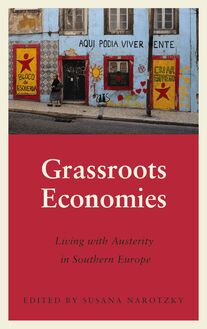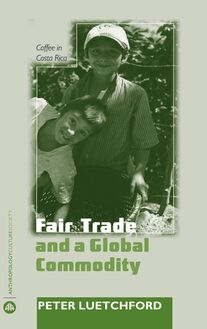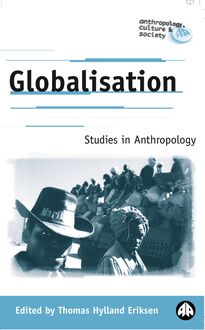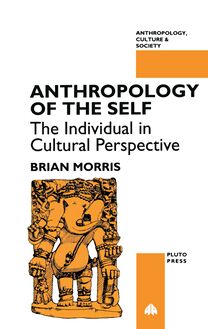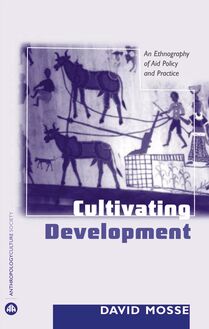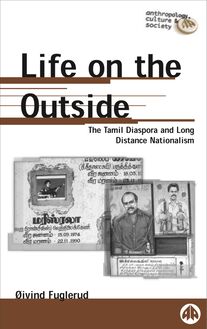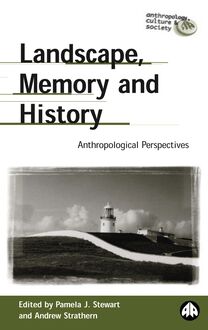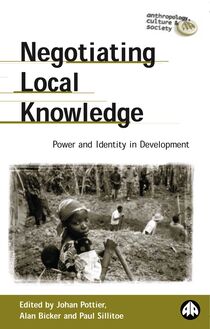Contesting Publics , livre ebook
118
pages
English
Ebooks
2014
Vous pourrez modifier la taille du texte de cet ouvrage
Obtenez un accès à la bibliothèque pour le consulter en ligne En savoir plus
Découvre YouScribe et accède à tout notre catalogue !
Découvre YouScribe et accède à tout notre catalogue !
118
pages
English
Ebooks
2014
Vous pourrez modifier la taille du texte de cet ouvrage
Obtenez un accès à la bibliothèque pour le consulter en ligne En savoir plus
Publié par
Date de parution
07 avril 2014
Nombre de lectures
0
EAN13
9781783711734
Langue
English
Lynne Phillips and Sally Cole analyse how new silences, exclusions and re-inscriptions of inequalities have emerged alongside these new spaces of participation. They re-examine the relationship between public and private and address a larger theoretical question: what is the meaning of 'the public' within democracy projects?
Contesting Publics considers current debates among feminists from different generations on the merits of a variety of strategies, goals and issues, drawing out vital lessons for students, researchers and activists in anthropology, gender studies and Latin American studies.
Illustrations
Acknowledgements
Preface: Contesting Publics
1. Towards an Ethnography of Publics - Sally Cole and Lynne Phillips
2. Auto-Constructed Feminist Publics: Household Matters in Northeast Brazil - Sally Cole
Activist Testimony: Mariza
3. Saving Women? Awkward Alliances in the Public Spaces of Sex Tourism - Marie-Eve Carrier-Moisan
Activist Testimony: Susana and Luísa
4. Feminism and 'Post-Neoliberal' Publics: Working the Spaces of Ecuador’s Constitutional Reform - Lynne Phillips
Activist Testimony: Cecilia
5. Gossip as Direct Action - Erica Lagalisse
6. A Pedagogical Conversation: Public Scholars and Public Scholarship - Sally Cole, Marie-Eve Carrier-Moisan, Erica Lagalisse and Lynne Phillips
Notes
References
Index
Contesting Publics
Anthropology, Culture and Society
Series Editors:
Professor Vered Amit, Concordia University and Dr Jon P. Mitchell, University of Sussex
Recent titles:
Claiming Individuality: The Cultural Politics of Distinction
E DITED BY V ERED A MIT AND N OEL D YCK
Community, Cosmopolitanism and the Problem of Human Commonality
V ERED A MIT AND N IGEL R APPORT
Home Spaces, Street Styles: Contesting Power and Identity in a South African City
L ESLIE J. B ANK
In Foreign Fields: The Politics and Experiences of Transnational Sport Migration
T HOMAS F. C ARTER
On the Game: Women and Sex Work
S OPHIE D AY
Slave of Allah: Zacarias Moussaoui vs the USA
K ATHERINE C. D ONAHUE
A World of Insecurity: Anthropological Perspectives on Human Security
E DITED BY T HOMAS E RIKSEN , E LLEN B AL AND O SCAR S ALEMINK
A History of Anthropology
T HOMAS H YLLAND E RIKSEN AND F INN S IVERT N IELSEN
Ethnicity and Nationalism: Anthropological Perspectives Third Edition
T HOMAS H YLLAND E RIKSEN
Globalisation: Studies in Anthropology
E DITED BY T HOMAS H YLLAND ovERIKSEN
Small Places, Large Issues: An Introduction to Social and Cultural Anthropology Third Edition
T HOMAS H YLLAND E RIKSEN
What Is Anthropology?
T HOMAS H YLLAND E RIKSEN
Discordant Development: Global Capitalism and the Struggle for Connection in Bangladesh
K ATY G ARDNER
Anthropology, Development and the Post-Modern Challenge
K ATY G ARDNER AND D AVID LEWIS
Border Watch: Cultures of Immigration, Detention and Control
A LEXANDRA H ALL
Corruption: Anthropological Perspectives
E DITED BY D IETER H ALLER AND C RIS S HORE
Anthropology’s World: Life in a Twenty-First Century Discipline
U LF H ANNERZ
Humans and Other Animals: Cross-Cultural Perspectives on Human–Animal Interactions
S AMANTHA H URN
Culture and Well-Being: Anthropological Approaches to Freedom and Political Ethics
E DITED BY A LBERTO C ORSÍN J IMÉNEZ
State Formation: Anthropological Perspectives
E DITED BY C HRISTIAN K ROHN -H ANSEN AND K NUT G. N USTAD
Cultures of Fear: A Critical Reader
E DITED BY U LI L INKE AND D ANIELLE T AANA S MITH
Fair Trade and a Global Commodity: Coffee in Costa Rica
P ETER L UETCHFORD
The Will of the Many: How the Alterglobalisation Movement is Changing the Face of Democracy
M ARIANNE M AECKELBERGH
The Aid Effect: Giving and Governing in International Development
E DITED BY D AVID M OSSE AND D AVID L EWIS
Cultivating Development: An Ethnography of Aid Policy and Practice
D AVID M OSSE
Terror and Violence: Imagination and the Unimaginable
E DITED BY A NDREW S TRATHERN , P AMELA J. S TEWART AND N EIL L. W HITEHEAD
Anthropology, Art and Cultural Production
M ARUŠKA S VAŠEK
Race and Ethnicity in Latin America Second Edition
P ETER W ADE
Race and Sex in Latin America
P ETER W ADE
The Capability of Places: Methods for Modelling Community Response to Intrusion and Change
S ANDRA W ALLMAN
Anthropology at the Dawn of the Cold War: The Influence of Foundations, McCarthyism and the CIA
E DITED BY D USTIN M. W AX
Learning Politics from Sivaram: The Life and Death of a Revolutionary Tamil Journalist in Sri Lanka
M ARK P. W HITAKER
CONTESTING PUBLICS
Feminism, Activism, Ethnography
Lynne Phillips and Sally Cole
with Marie-Eve Carrier-Moisan and Erica Lagalisse
First published 2013 by Pluto Press 345 Archway Road, London N6 5AA
www.plutobooks.com
Distributed in the United States of America exclusively by Palgrave Macmillan, a division of St. Martin’s Press LLC, 175 Fifth Avenue, New York, NY 10010
Copyright © Lynne Phillips and Sally Cole 2013
The right of Lynne Phillips and Sally Cole to be identified as the authors of this work has been asserted by them in accordance with the Copyright, Designs and Patents Act 1988.
British Library Cataloguing in Publication Data A catalogue record for this book is available from the British Library
ISBN 978 0 7453 3284 0 Hardback ISBN 978 0 7453 3459 2 Paperback ISBN 978 1 8496 4812 7 PDF eBook ISBN 978 1 7837 1174 1 Kindle eBook ISBN 978 1 7837 1173 4 EPUB eBook
Library of Congress Cataloging in Publication Data applied for
This book is printed on paper suitable for recycling and made from fully managed and sustained forest sources. Logging, pulping and manufacturing processes are expected to conform to the environmental standards of the country of origin.
10 9 8 7 6 5 4 3 2
Designed and produced for Pluto Press by Chase Publishing Services Ltd Typeset from disk by Stanford DTP Services, Northampton, England Simultaneously printed digitally by CPI Antony Rowe, Chippenham, UK and Edwards Bros in the United States of America
Contents
Illustrations
Acknowledgements
Preface: Contesting Publics
Sally Cole and Lynne Phillips
1.
Towards an Ethnography of Publics
Sally Cole and Lynne Phillips
2.
Auto-constructed Feminist Publics: Household Matters in Northeast Brazil
Sally Cole
Activist Testimony : Mariza
3.
Saving Women? Awkward Alliances in the Public Spaces of Sex Tourism
Marie-Eve Carrier-Moisan
Activist Testimony : Susana and Luísa
4.
Feminism and ‘Post-neoliberal’ Publics: Working the Spaces of Ecuador’s Constitutional Reform
Lynne Phillips
Activist Testimony : Cecilia
5.
Gossip as Direct Action
Erica Lagalisse
6.
A Pedagogical Conversation: Public Scholars and Public Scholarship
Sally Cole, Marie-Eve Carrier-Moisan, Erica Lagalisse and Lynne Phillips
Notes
References
Index
Illustrations
TABLES
2.1
Sources of household income
2.2
Essential household expenses
FIGURES
2.1
Conjugal partnership
2.2
Mother and daughter co-management
2.3
Women-and-children-only household
3.1
The Big White Penis Public Act against sex tourism in Natal, 8 November 2006
3.2
Ad from the city campaign: ‘It won’t protect you against shame.’
3.3
Ad from the city campaign: ‘Blushing or tanning?’
3.4
Ad from the city campaign: ‘If you’re here after sex tourism, get your bags and go back home.’
Acknowledgements
We would like to thank women and men working for social change every day in diverse ways and challenging contexts across Latin America. Maria Rosa Achundia, Andrea Aguirre, Faviola Arias, Auxiliadora Dias Cabral, Mary Cabrera, Maria de Conceição Dantas de Moura, Isolde Dantas, Liliana Duran, Nalu Faria, Gladys Fuentes, Luz Haro, Maria Hernandez, Gioconda Herrera, Emma Illescas, Magdalena León, Neylar Lins, Rosa Lopez, Monica Munõz, Suely de Oliveira, Soldedad Puente, Junia Puglia, Rocio Rosero, Lucia Salamea, Neli Shewan, Analba Brazão Teixeira, Silvia Vega and Marina Vera especially gave us their time, shared their passion, energy and commitment and led us to the new theoretical insights we present in Contesting Publics . It has been an inspiring journey, one that renewed our own hopes for the future. We would like to thank the Social Sciences and Humanities Research Council of Canada for funding. We also warmly thank Pluto Press’s anonymous readers who gave such strong support for the project and its re-visiting of old debates on the ‘public’ and the ‘private’, its questioning of the meaning of ‘civil society’ and its effort to clear theoretical space for imagining alternative futures.
LP and SC, July 2012
Preface: Contesting Publics
Sally Cole and Lynne Phillips
Between 2006 and 2009 we interviewed feminist activists working in a variety of transnational networks and national democracy-building projects in Latin America. We started by interviewing feminist officers of the United Nations Development Fund for Women, UNIFEM (now UN Women) in Brazil and Ecuador. Despite differences in language, colonial history and physical size between these countries, we found the comparison fruitful as both countries are tied to the ‘machinery’ of the UN (Phillips and Cole 2009), yet both are also experimenting with new modes of participatory democracy in which women’s movements are actively engaged. We ‘followed’ (Marcus 1998; Tsing 2005) the roots and routes of feminists’ activities in both countries and found ourselves entering increasingly diverse spaces and scales of political action. We interviewed activists working in the national state agencies that are conceived as part of democracy-building in both Ecuador and Brazil: CONAMU (Consejo Nacional de las Mujeres, National Council of Women) in Ecuador and SPM (Secretaria Especial de Políticas para as Mulheres, Special Secretariat for Policy for Women) in Brazil. And, in both countries, we interviewed activists in unions, in transnational networks and in small non-governmental organizations (NGOs) in rural settings.
We saw that activists at all scales are continually making decisions about when and how to bring women’s concerns to public arenas – a process we describe as a feminist ‘politics of presence’ (see Phillips and Cole 2009; see also A. Phillips 1996; Pinto 2007). We also saw Latin American feminists creating new public spaces such as the regional network, REMTE (Red Latinoamericana Mujeres Transformando la Economía/Latin American Network of Women Transforming the Economy). And, we saw them producing what we call publics-in-formation such as Mujeres de Frente (Women’s Front) working with women in prison in Ecuador. The excitement of creating new feminist spaces through public activism was palpable in Latin America. For us, this energy contrasted sharply with our experience in Canada – in our classrooms, where our own students typically disclaim any association with feminism, and in broader public discourse where we find feminism largely absent. However, in Ecuador and Brazil, we also became aware of how gender inequalities not only persisted but were being inscribed in new ways – something we also see in Canada (see, for example, Beaman 2012). Specifically, we found a significant relationship between the meaning of the public and the ways in which some matters –
